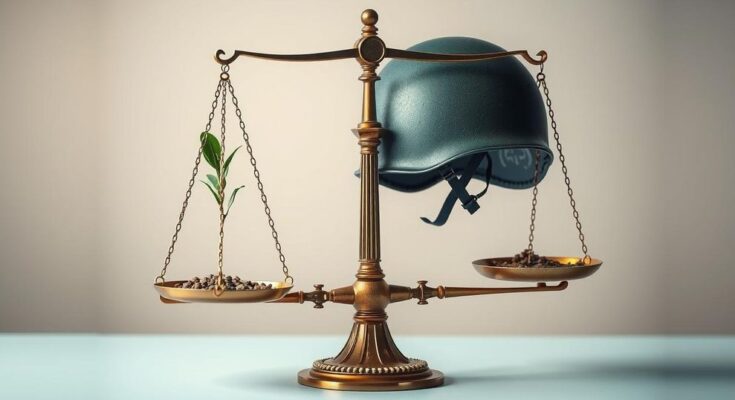Ecuador’s general elections on February 9, 2025, have resulted in a runoff between incumbent President Noboa and Luisa González. With rising violence and unemployment as key issues, Noboa proposes militarization while González advocates for social investment. Voters will decide on April 13 the direction Ecuador will take to combat these pressing concerns.
Ecuador held its general elections on February 9, 2025, where over 11 million voters selected leaders for the upcoming four years. The elections included votes for the president, vice president, 151 assembly members, and five Andean parliamentarians. The newly formed National Legislative Assembly, effective from May 14, will predominantly comprise two political factions: the center-left Movimiento Revolución Ciudadana (RC) and the center-right Acción Democrática Nacional (ADN).
Neither presidential candidate emerged victorious in the first electoral round, leading to a runoff scheduled for April 13. Incumbent President Daniel Noboa is set to face his main rival, Luisa González, who represents the Correista movement. Both candidates must address pressing issues such as unemployment and insecurity, as highlighted in a recent IPSOS study revealing that three-quarters of Ecuadorians prioritize these concerns.
Ecuador is grappling with escalating violence, reflected by the highest homicide rate in Latin America and a significant increase in violent deaths from the previous year. Security expert Luis Córdova indicates that insufficient public investment in critical services is a primary factor contributing to violence. With 732 violent deaths recorded in January 2025, public safety remains a chronic issue that successive administrations have struggled to resolve.
In response to violence, President Noboa’s policies include the continuation of the “internal armed conflict” strategy and military deployment for public security. This approach faced criticism following an incident involving the forced disappearance of four minors, allegedly by military personnel. The government attributed their disappearance to “criminal groups,” although the case raised significant concerns regarding military operations and accountability.
Ecuador’s elections delineate a critical juncture in its approach to violence and social policy. Candidates Noboa and González represent diverging visions, with Noboa favoring militarization and González advocating for social investment. As voters prepare for the runoff on April 13, the election’s outcome will determine whether Ecuador prioritizes military force or social reform to address its challenges.
Original Source: globalvoices.org




